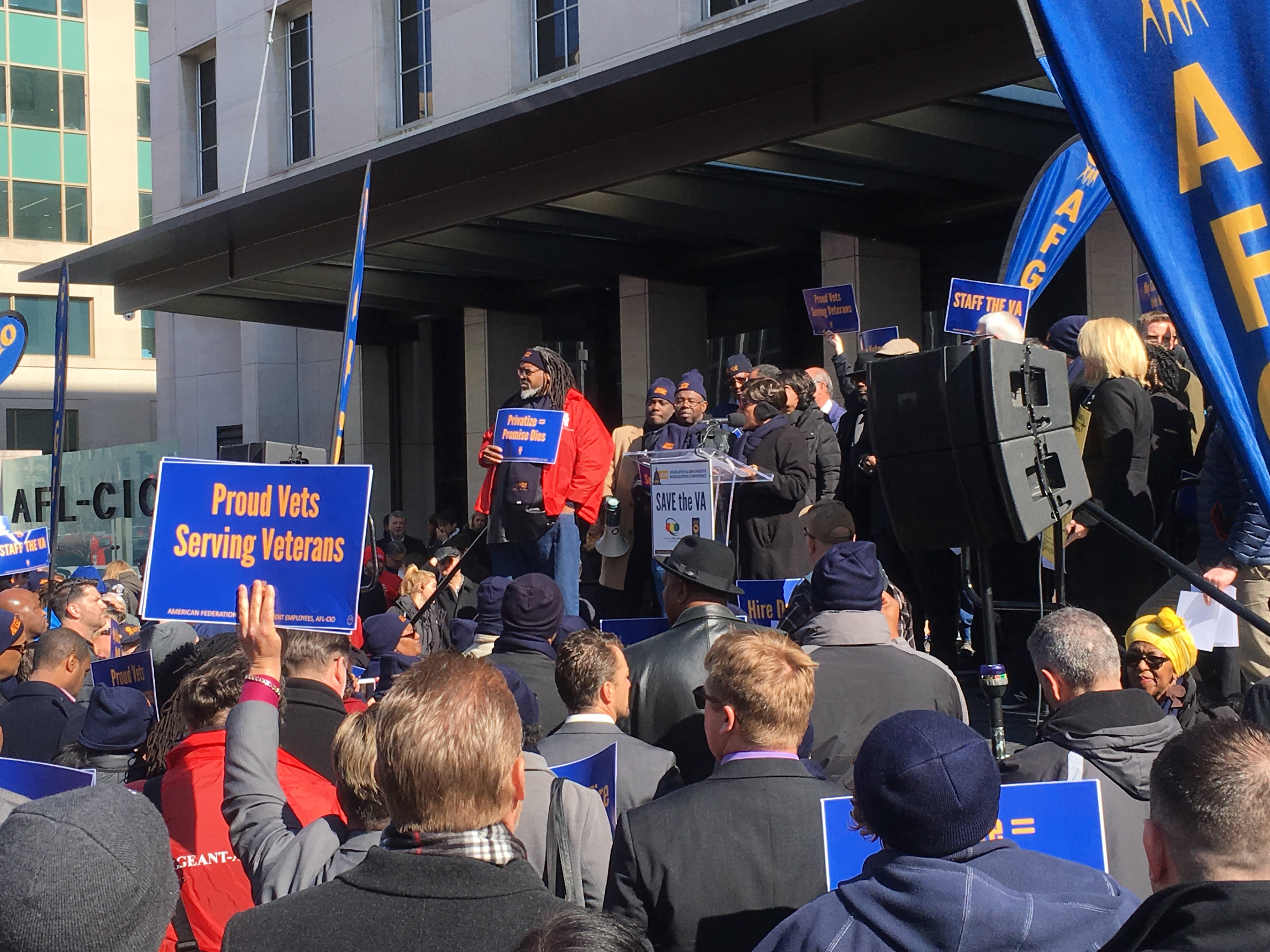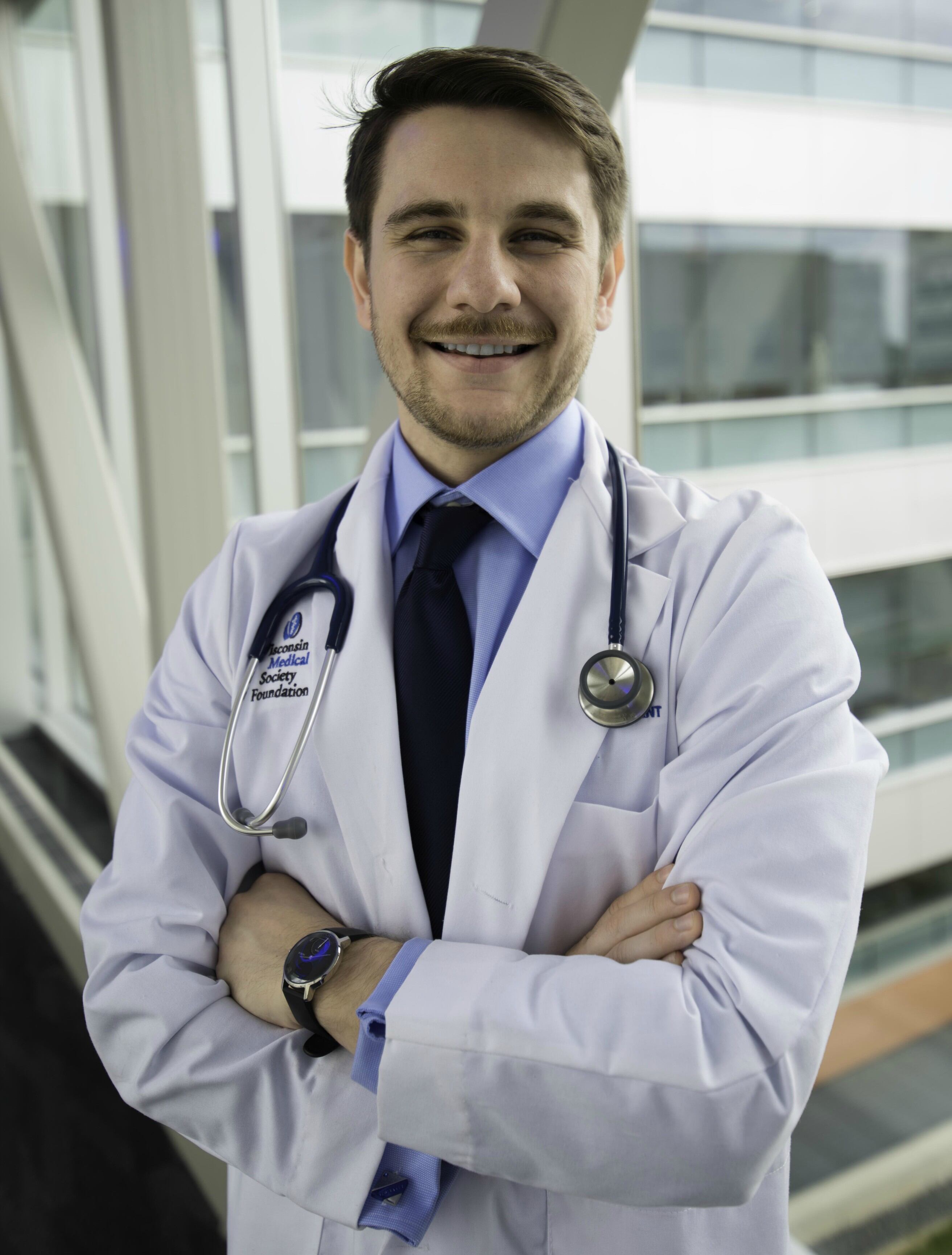Imagine a world where more civilians knew about veterans’ health issues and were trained early on to be doctors, health professionals, and even advocates for the wellbeing of military service members.
That’s what Rep. Marcy Kaptur, D-Ohio, hopes can happen if her new bill becomes law. The Veterans-Specific Education for Tomorrow’s Health Professionals Act aims to create a program for pre-med students to get clinical observation hours and other training at VA hospitals before medical school. She also sees it as a promising way to address the more than 40,000 job vacancies within the Veterans Health Administration.
“I call it a ladder into the VA,” Kaptur said in an interview.
The bill would establish a one-year pilot program in at least five VA hospitals, prioritizing students studying a health profession where there is an identified VA staffing shortage, as well as veterans. Students who are from medically underserved areas, the first in their families to go to college, or who attend schools with a large minority student population will also get priority.
“It addresses the fact that we are a very large country with many possibilities, but that if your family hasn’t had an experience in the military or through the Department of Veterans Affairs, for example, you simply don’t know that these jobs are available. It’s a place you don’t look. You don’t even think about it,” the congresswoman said.
“Our bill is a way of creating a pipeline of future doctors, nurses, medical professionals who would serve in the Department of Veterans Affairs” — and, on a larger scale, alert people to the fact that the VA actually exists, she said.
The legislation, dubbed the “Vet HP Act” for short, recently passed the House of Representatives and is now being considered in the Senate, where Kaptur’s office is confident the bill will get through.
RELATED

VA spokesman Randy Noller said the department has not taken a position on the bill and pointed out that the VA has actually seen a recent decrease in the number of vacant positions, hiring 1,045 additional mental health providers alone since Jan. 31.
“The best indicators of adequate staffing levels are not vacancies, but veteran access to care and health care outcomes,” he said in an email. “By those standards, VA is doing well.”
Still, according to employment figures Noller provided, about 11 percent of full-time equivalent positions in the Veterans Health Administration remain vacant — a total of 42,790 out of 374,956.
The idea for the Vet HP Act originated from Kaptur’s own visits to VA health care centers, she said, as well as the advocacy efforts of undergraduate students who reached out to her office a few years ago.
One of those students was Michael McNamara, then a pre-med major at Georgetown University who is now in his first year of medical school at Medical College of Wisconsin.
“We kind of came at it from the student perspective,” he said. “You need so many hours to get seriously looked at in terms of an application to medical school.”
But if you don’t have any personal connections to physicians or hospitals or robust school alumni networks to help you make those connections, finding a place to get that type of exposure before medical school can be challenging, he said.

When the group was discussing ways to level the playing field, they thought about the VA, which had recently been in the news in McNamara’s home state of Arizona after dozens of patients died while waiting for appointments.
“It was just generally becoming more recognized that [vacancies are] a huge problem, and things were being done to ameliorate it. But from the student perspective, it seemed like an area where we could maybe help,” McNamara said.
He said the VA has a good reputation for training physicians, and a pilot program like the one Kaptur is proposing could help foster early loyalty to the system.
“Maybe if from the very beginning they were exposed to VA as a tool for helping these specific veteran health issues, as well as educators, there might be some incentive … to remain within the organization and help some of these vacancies,” he said.
Andrew Frank, another Georgetown alumnus who worked on the idea with Kaptur’s office, said such a partnership has the ability to have a far-reaching impact.
“At the bare minimum, the result of a clinical shadowing program at the VA is a more conscientious and veteran-aware student,” he said. “At its best, it's a future VA physician or other healthcare professional.”
Kaptur said the VA has a lot to teach the next generation — from studies being conducted in research labs to the use of new medical technologies addressing veterans’ needs. And on the flip side, the young students poised to someday become health professionals would bring an infusion of “new energy and new intelligence” to the system.
The bill mandates that each training session provide a “diverse clinical observation experience”; while the majority of the time should be spent observing a health professional, students should also be exposed to a variety of aspects of medical care.
If the legislation moves forward to become law, the pilot program would run for one year, starting no later than August 2021, with five to 15 undergraduate students at each of the five VA health center sites per training period.
Military Times contributor and former reporter Natalie Gross hosts the Spouse Angle podcast. She grew up in a military family and has a master's degree in journalism from Georgetown University.





